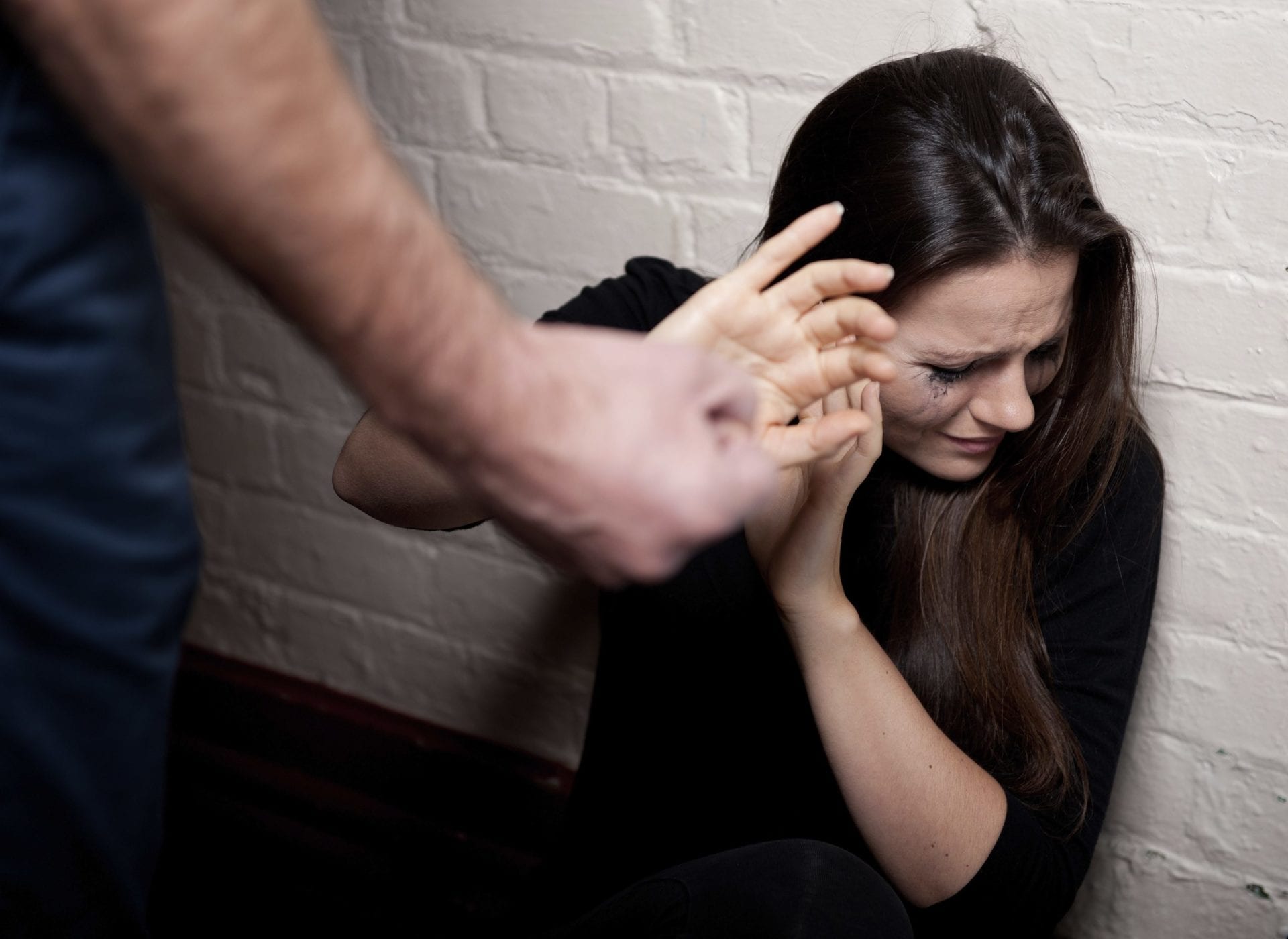Naturally, there are exceptions to every rule. However, studies have shown that those that have been abused oftentimes become abusers. In fact, 30-70% of sexual offenders have been sexually abused, according to reports. People often ask me how someone that endured the agony and pain of sexual abuse could turn around and bestow that pain on another. I simply tell them that it is a learned behavior. In other words, people that are hurting sometimes hurt other people. This is what they have been taught, usually by their parents or other family members. They are products of their environments and do not necessarily know any other way to behave. Moreover, this behavior allows them to feel powerful or as if they are finally in control of their relationships, something that they lacked when they were being abused.
Romans 7:18-19New International Version (NIV)
18 For I know that good itself does not dwell in me, that is, in my sinful nature. For I have the desire to do what is good, but I cannot carry it out. 19 For I do not do the good I want to do, but the evil I do not want to do—this I keep on doing.
In addition, sexual offenders are usually angry individuals. They are angered about the sexual abuse, mistreatment, and betrayal that they received from people that they initially thought that they could trust. As a result, they lash out at others. This is a defense mechanism that they use to protect themselves. Meaning, they believe that the world is vicious, unfair, and unconcerned about their prolonged suffering. Therefore, they attack before they are actually attacked or victimized, again.
Furthermore, these individuals truly believe that they are the victims. As children, they were abused, and they were the victims at one point of time. However, in their minds, they are still the victims, even though, they are now bestowing the same behavior on others, but the abusers still do not believe that they are bad individuals, despite their inappropriate behavior. Instead, they continue to place the blame on others, as evidenced in this recent case focusing on a former teacher at Gwinnett High School.
On Friday, July 14, 2017, former orchestra teacher, Therese Gunn, admitted in a court of law that she engaged in a sexual relationship with a 17-year-old student. However, Gunn partially blamed the student for the inappropriate act. Specifically, Therese Gunn, a 54-year-old former teacher at South Gwinnett High School, apologized to the court but stated that the student “was like a used car salesman,” according to reports, who coerced or forced Gunn into the relationship.
Gunn worked as a teacher for 25 years, and she had worked at Gwinnett High School since 2002. Moreover, she held a relationship with the student (whom she taught for three years) for several months. They allegedly engaged in sexual acts at the school, Gunn’s home, and at Lenora Park. The student’s mother reported the relationship to police officers after reading about the event in her child’s journal.
During their initial press release, Gwinnett County police stated that the teacher had hosted a party at her place of residence in Grayson. While at the party, Gunn allowed the 17-year-old and two females to smoke marijuana. Gunn smoked the marijuana with them. Initially, the court charged Gunn with multiple counts of contributing to the delinquency of a minor, but she was not indicted on those charges. Instead, the court only sentenced Therese Gunn to 90 days in prison with the remainder of her 10-year sentence spent on probation. The 17-year-old victim that Gunn had sexual relationships with responded to the verdict by stating that Gunn “made
Many people were appalled after hearing the judge’s ruling…Gunn would only spend 90 days in prison. On numerous occasions, angry spectators have stated that drug dealers receive longer sentences than individuals that sexually abuse children, which leads many to believe that the justice system is unfair. As a criminal defense attorney, I realize that the legal system, like anything else, has its imperfections. However, I also understand that many abusers are ill and need specified treatment…treatment that a prison alone may not necessarily offer, which is one reason that sex offenders often repeat their behavior after being released from prison.
The judge, in the Therese Gunn case, did not administer a reduced sentence to the defendant as a result of not caring about the 17-year-old victim. Instead, the judge understood that prison would not necessarily prevent the incident from recurring. However, a specialized treatment conducted by a therapist who specializes in assisting adults with sexual behavior issues could help to dramatically reduce or completely eliminate the abusive behavior. Consequently, many people are ordered by a court of law to attend sexual offender treatment. Please understand, by no means do we (those working in the legal field) condone sexual abuse. Undoubtedly, sexual offenders must be held accountable. In addition, we want to ensure that these individuals are receiving the assistance that they need to prevent them from repeating the behavior in the future.
Titus 2:11-12New International Version (NIV)
11 For the grace of God has appeared that offers salvation to all people.12 It teaches us to say “No” to ungodliness and worldly passions, and to live self-controlled, upright and godly lives in this present age…
It is sometimes difficult to change one’s behavior, and sexual offenders are not able to change on their own. Furthermore, prisons alone are not equipped to prevent the behavior from recurring in the future, as evidenced from sexual offenders repeating the sexual abuse once released from prisons. Therefore, as a criminal defense attorney, I understand the importance of working with my clients and the courts, ensuring that my clients receive fair sentences and the specialized treatment that they need to help them to heal and change their behavior. If you or someone that you know have been accused of a sexual offense, contact my office, today.










 [/one_fourth][one_fourth spacing=”yes” last=”no” center_content=”yes” hide_on_mobile=”no” background_color=”” background_image=”” background_repeat=”no-repeat” background_position=”left top” link=”https://www.google.com/search?q=craig+greaves+google+review&rlz=1C1CHBF_enUS706US707&oq=craig+greaves+google+review&aqs=chrome..69i57.4724j0j7&sourceid=chrome&ie=UTF-8#lrd=0x864681a2e536064b:0xf68c5e64fac79532,3″ target=”_blank” hover_type=”none” border_position=”all” border_size=”” border_color=”” border_style=”solid” padding-top=”” margin_top=”” margin_bottom=”” animation_type=”0″ animation_direction=”down” animation_speed=”0.1″ animation_offset=”” class=”button_pop-up” id=””]
[/one_fourth][one_fourth spacing=”yes” last=”no” center_content=”yes” hide_on_mobile=”no” background_color=”” background_image=”” background_repeat=”no-repeat” background_position=”left top” link=”https://www.google.com/search?q=craig+greaves+google+review&rlz=1C1CHBF_enUS706US707&oq=craig+greaves+google+review&aqs=chrome..69i57.4724j0j7&sourceid=chrome&ie=UTF-8#lrd=0x864681a2e536064b:0xf68c5e64fac79532,3″ target=”_blank” hover_type=”none” border_position=”all” border_size=”” border_color=”” border_style=”solid” padding-top=”” margin_top=”” margin_bottom=”” animation_type=”0″ animation_direction=”down” animation_speed=”0.1″ animation_offset=”” class=”button_pop-up” id=””] [/one_fourth][one_fourth spacing=”yes” last=”no” center_content=”yes” hide_on_mobile=”no” background_color=”” background_image=”” background_repeat=”no-repeat” background_position=”left top” link=”https://www.avvo.com/attorneys/77803-tx-craig-greaves-60538/write_review.html” target=”_blank” hover_type=”none” border_position=”all” border_size=”” border_color=”” border_style=”solid” padding-top=”” margin_top=”” margin_bottom=”” animation_type=”0″ animation_direction=”down” animation_speed=”0.1″ animation_offset=”” class=”button_pop-up” id=””]
[/one_fourth][one_fourth spacing=”yes” last=”no” center_content=”yes” hide_on_mobile=”no” background_color=”” background_image=”” background_repeat=”no-repeat” background_position=”left top” link=”https://www.avvo.com/attorneys/77803-tx-craig-greaves-60538/write_review.html” target=”_blank” hover_type=”none” border_position=”all” border_size=”” border_color=”” border_style=”solid” padding-top=”” margin_top=”” margin_bottom=”” animation_type=”0″ animation_direction=”down” animation_speed=”0.1″ animation_offset=”” class=”button_pop-up” id=””] [/one_fourth][one_fourth spacing=”yes” last=”yes” center_content=”yes” hide_on_mobile=”no” background_color=”” background_image=”” background_repeat=”no-repeat” background_position=”left top” link=”https://www.yelp.com/biz/the-law-office-of-craig-m-greaves-bryan” target=”_blank” hover_type=”none” border_position=”all” border_size=”” border_color=”” border_style=”solid” padding-top=”” margin_top=”” margin_bottom=”” animation_type=”0″ animation_direction=”down” animation_speed=”0.1″ animation_offset=”” class=”button_pop-up” id=””]
[/one_fourth][one_fourth spacing=”yes” last=”yes” center_content=”yes” hide_on_mobile=”no” background_color=”” background_image=”” background_repeat=”no-repeat” background_position=”left top” link=”https://www.yelp.com/biz/the-law-office-of-craig-m-greaves-bryan” target=”_blank” hover_type=”none” border_position=”all” border_size=”” border_color=”” border_style=”solid” padding-top=”” margin_top=”” margin_bottom=”” animation_type=”0″ animation_direction=”down” animation_speed=”0.1″ animation_offset=”” class=”button_pop-up” id=””] [/one_fourth]
[/one_fourth]